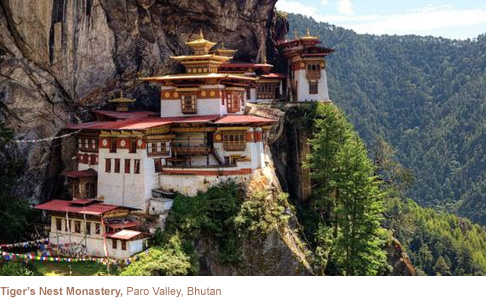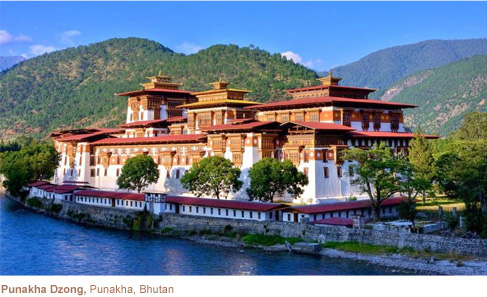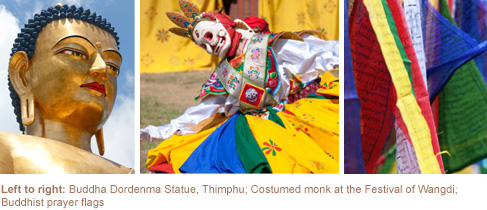Bhutan is the only nation in the world that measures its progress in terms of Gross National Happiness (GNH), unlike other countries, which measure progress by Gross Domestic Product (GDP) This distinction is uniquely characteristic of the small, landlocked country, tucked away in the Eastern Himalayas, south of the Tibetan Autonomous Region and bordered by India on the East, South and West. Woven into the fabric of Bhutan’s governmental policies and everyday way of life is a belief in the need for harmony between the land and its people, between tradition and development, between old ways and new.

One of ten “biodiversity hotspots” in the world, Bhutan is home to an exotic array of wildlife, including an estimated 770 species of birds, as well as numerous medical plants, orchids and over 50 species of rhododendron. Constitutional laws require that at least 60 percent of the nation must remain under forest cover at all times.

In 1999, the Bhutanese government lifted a ban on television and Internet, one of the last countries in the world to do so. This introduced new elements of modernization, however tourism and development remain carefully controlled, in order to preserve Bhutan’s strong cultural traditions and majestic natural treasures.


